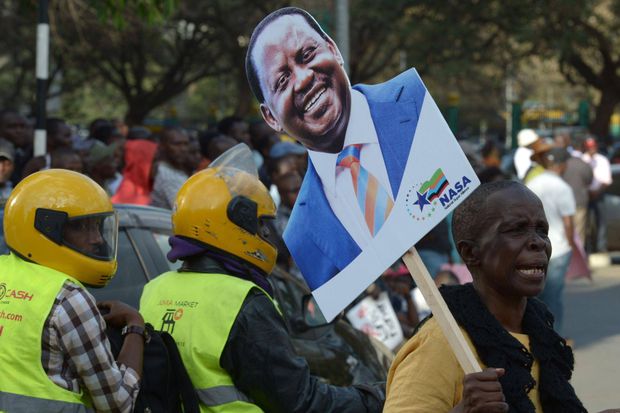Can Kenya fix its broken politics?
The initial shock of the supreme court’s decision to annul last month’s presidential election has just about worn off. Now, Kenya must brace itself for a new vote, tentatively scheduled for October 17, and all the problems that go with trying to organise a fresh ballot in less than 60 days.
It’s already getting messy. The Independent Electoral and Boundaries Commission (IEBC) and its chairperson, Wafula Chebukati, are once again in the hot seat, despite their past failures. Opposition leader Raila Odinga wanted Chebukati to resign, but he still enjoys the support of President Uhuru Kenyatta.
“You cannot do a mistake twice and expect to get different results,” said Odinga. “A number of the officials of the commission should be sent home; some of them should be investigated for the heinous crimes they committed.”
But maybe that’s not so easy. “The IEBC and … Chebukati were found by the court to have committed irregularities and illegalities in their mismanagement of the elections,” wrote the Daily Nation’s Macharia Gaitho.
“In such circumstances, it is understandable that Mr Odinga would be wary of repeat elections run by individuals who might well be indicted for election offences. The [opposition] campaign team must, however, bear in mind that any calls for the removal of electoral commissioners must be tempered by the reality of very tight election timelines.”
Those tight timelines are throwing up innumerable logistical challenges.
Can ballot papers be printed in time, and who can be trusted to print them? The opposition wants new printers, because they suspect foul play by Al Ghurair, the Dubai-based company that did the initial batch. But Al Ghurair has a two-year contract with the IEBC that may be costly to escape.
Will the same voting technology be used? Kenya adopted electronic voting systems, at vast expense, ahead of the last vote. But instead of making voting fairer, critics argue that the machines made it easier to rig.
Can Kenya afford another vote? Some estimates suggest the cost of the rerun could be as much as 10‑billion shillings (R1.24‑billion) — for hiring polling clerks and other officials, arranging transport and security and to cover a hefty legal bill — with another 2.5‑billion shillings (R310‑million) to print the ballots.
Above all, Kenyans are asking whether a new vote will solve the country’s political problems or whether a radical new solution is needed. On the pages of local papers, there is speculation about the possibility of another government of national unity, which would incorporate both Kenyatta and Odinga. There are also, ominously, suggestions that Kenya might be better off if it split into two separate countries.
The court’s decision to annul the election has been hailed as a victory for democracy and the rule of law in Africa. Nonetheless, in scrapping the result, the court proved just how broken the country’s political system is. Can Kenya pick up the pieces?
Simon Allison
This piece was originally appeared in the Mail and Guardian South Africa

